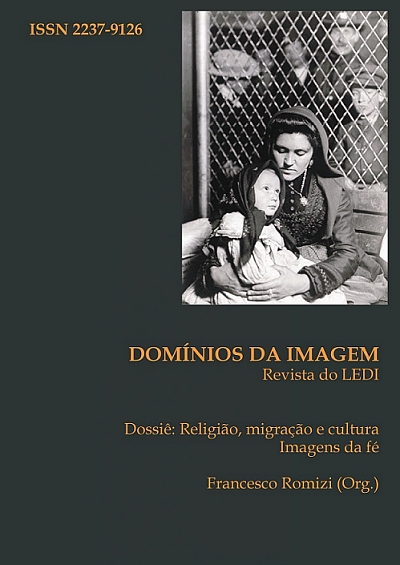The candomblé lands in german
DOI:
https://doi.org/10.5433/2237-9126.2016v10n18p86Keywords:
Expansion of Afro-Brazilian religiosity in Europe, Brazilian migration, Religious field in Germany, Austria and Switzerland.Abstract
In this article, we analyze the expansion of Umbanda and Candomblé in Germany, Austria and Switzerland. We also analyze the circulation of ethnic symbols in the religious field, focusing on the importance of the terreiro of Candomblé Ilê Obá Silikê in the city of Berlin. We seek to understand how the construction of the terreiro is important in the production of symbols related to Brazilian culture. Our study is based on fieldwork we began in 2009, trying to understand the way Candomblé is experienced by its practitioners in a new social context, based on the idea that religious transnationalization concerns the adjustments to the practices imported in a very particular context, theirs ways of becoming local and the incorporation of new belief systems.Downloads
References
CAPONE, Stefania; TEISENHOFFER, Viola. Devenir médium à Paris: aprentissage et adaptation rituels dans l'implantation d'un terreiro de candomblé en France. Psychopathologie Africaine, vol. XXXI, n. 1, p. 127-156, 2001-2002.
CAPONE, Stefania. A busca da África no candomblé: tradição e poder no Brasil. Rio de Janeiro: Pallas, 2004.
CASTELLS, Manuel. The greening of the self: the environmental movement in the power of identity. USA/UK: Blackwell, 1999.
GRUNER-DOMIC, Sandra. Die Migration kubanischer Arbeitskräfte. In die DDR 1978-1989. Berlim: Humboldt-Universität (Magisterarbeit), 1996.
JENKINS, Richard. Rethinking ethnicity: arguments and explorations. Londres: Sage Publications, 1997.
MARTES, Ana Cristina Braga. Os imigrantes brasileiros e as igrejas em Massachusetts. In: SALES, Teresa; REIS, Rossana. Cenas do Brasil migrante. São Paulo: Boitempo, 1999.
OKAMURA, Jonathan. Situational ethnicity. Ethnic and Racial Studies. Londres, vol. 4, n. 4, p. 458, out. 1981.
ORO, Ari. As religiões afro-brasileiras: religiões de exportação. In: AFRO-AMERICAN RELIGIONS IN TRANSITION. INTERNATIONAL CONFERENCE OF THE AMERICANISTS. Anais. Uppsala, Suécia, jul. 1998.
PORDEUS JR., Ismael. Uma casa luso afro-portuguesa com certeza: emigrações e metamorfoses da umbanda em Portugal. São Paulo: Terceira Margem, 2000.
PRANDI, Reginaldo. As religiões negras no Brasil: para uma sociologia dos cultos afro-brasileiros. Revista USP. (28), p. 64-83, 1996.
PRANDI, Reginaldo. Encantaria brasileira: o livro dos mestres, caboclos e encantados. Rio de Janeiro: Pallas Editora, 2004.
ROSSBACH DE OLMOS, Lioba. Santeria Abroad: the short history of an Afro-Cuban religion in Germany by means of biographies of some of its priests. Anthropos. Alemanha, n. 104, p. 483-497, 2009.
SALES, Teresa. Brasileiros longe de casa. São Paulo: Cortez, 1999.
SEGATO, Rita Laura. Uma vocação de minoria: a expansão dos cultos afro-brasileiros na Argentina como processo de reetnização. Dados: revista de ciências sociais. Rio de Janeiro, vol. 34, n. 2, 1991.
SPLIESGART, Roland. Brasilianische Religionen in Deutschland. In: KLÖCKER, Michael; TWORUSCHKA, Udo (Org.). Handbuch der Religionen: Kirchen und andere Glaubensgemeinschaften in Deutschland. Bd. II, München, 27. Ergänzungslieferung, 2011.
Downloads
Published
How to Cite
Issue
Section
License
Copyright (c) 2016 Domínios da ImagemDomínios da Imagem adopts the Creative Commons Attribution 4.0 International License, therefore, the copyrights related to the published articles belong to the author(s), who grant the journal the exclusive right of first publication.
Under this license it is possible to: Share - copy and redistribute the material in any medium or format. Adapt - remix, transform, and build upon the material, giving due credit and providing a link to the license and indicating if changes were made.













 The works in this journal are licensed under Creative Commons .
The works in this journal are licensed under Creative Commons .